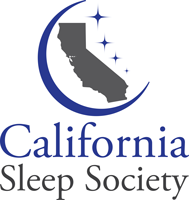By: Elie Gottlieb, PhD
Consumer sleep technology is ubiquitous with the goal of empowering users to become more aware of their sleep, with some even claiming to improve healthy sleep and circadian behaviors. Initially conceived as ‘fitness trackers’ primarily limited to accelerometer/motion data, these devices have evolved to measure a variety of biosignals, such as cardiorespiratory, heart rate variability, skin temperature, along with gross body motion. Physiological data that was previously confined to research or clinical settings are now accessible inside a lifestyle product, giving users an unprecedented lens into their own sleep health. Several reviews and position statements have explicitly highlighted the limitations of CST, primarily for the diagnosis of sleep disorders. Despite the diagnostic limitations of consumer sleep technology being emphasized in published guidelines, individuals with subclinical threshold sleep problems or patients with a treated sleep disorder looking for an adjunct behavioral tool may benefit from consumer sleep technologies that have an acceptable degree of accuracy (e.g., one that at least meets, or exceeds clinical actigraphy) and evidenced-based behavioral sleep improvement features.
One of the most compelling – and arguably least controversial – opportunities for consumer sleep technology to revolutionize clinical and research settings is through its ability capture longitudinal, non-invasive, and ecologically-valid sleep data on a large scale. Recent studies have shown that the overall accuracy, and particularly specificity, of most recent consumer devices surpass that of traditional research-based actigraphy, bolstering the confidence of clinicians in the patient-provided data. The pervasive nature of these technologies offers an opportunity to examine sleep over extended periods, providing a more comprehensive view of multiple dimensions of sleep health. This data can be instrumental in detecting both daily and longitudinal sleep changes, understanding intraindividual variability, and potentially tailoring interventions for optimal impact. The data obtained from consumer sleep devices can serve as a powerful tool for opening discussions around the importance of sleep health. Clinicians can use these objective metrics to substantiate their advice, helping patients understand the tangible impact of their lifestyle on sleep quality. By visualizing the correlation between sleep and daily habits, patients can become more aware of their personal sleep hygiene.
Less explored and widely accepted is the potential role of consumer sleep technology apps to target healthy sleep behaviors using behavior change techniques. Arroyo et al. (2022) found strong evidence that mobile health applications are effective in improving sleep. The most commonly used behavior change techniques included feedback and monitoring, shaping knowledge, goals and planning, and antecedents. Interestingly, the authors noted that regardless of sleep dimension or measurement, there were no negative effects of interventions on sleep reported across all studies included in the systematic review – a perhaps surprising finding given preliminary evidence of orthosomnia among some “quantified-selfers”. These data suggest that consumer sleep technologies should go beyond sleep tracking and merely providing users with non-contextual data, or data without personalized advice or feedback. Beyond sleep tracking, certain consumer sleep technologies offer sophisticated software that leverage objective and self-reported sleep and lifestyle data to provide users with personalized and dynamic advice founded in the principles of cognitive behavioral therapy and sleep and circadian hygiene. These recommendations, which can range from sleep hygiene advice, nudges toward consistent bedtime and waketimes, sleep and circadian education, and environmental and lifestyle adjustments, can serve as valuable adjuncts in maintaining healthy sleep habits and promoting sleep and circadian hygiene. The integration of behavioral science through in-app gamification in consumer sleep technology can also prove instrumental in measuring and improving patient engagement and adherence to treatment. For example, patients undergoing Cognitive Behavioral Therapy for Insomnia (CBT-i) can benefit from an interactive sleep hygiene game to spot issues in a hypothetical bedroom, which can make adherence more enjoyable and rewarding. By translating treatment goals into game-like challenges, patients can become more motivated to comply with their prescribed regimen, potentially improving their outcomes.
The recent explosion of artificial intelligence (AI) also provides a cautiously optimistic opportunity for consumer sleep technology to transcend mere sleep monitoring. AI can analyze sleep data in conjunction with other health data collected by wearables to provide a more holistic view of a person’s health, and help identify ways in which sleep health can be improved – and big tech is catching on. Apple is developing AI-powered health coaching services that will use data from Apple Watch to make suggestions and create personalized coaching programs designed to keep users motivated to exercise, aid in nutrition, and improve sleep, according to a recent Bloomberg report. In the age of precision and preventative medicine, consumer sleep technologies also offer an opportunity to screen for undiagnosed sleep disorders. Certain consumer sleep technology apps include clinically validated screeners for insomnia, restless legs syndrome, and obstructive sleep apnea that be accessed on-demand and provide users with risk scores and clinical care and diagnostic pathways.
Ultimately, consumer sleep technology holds promise for advancing not just our understanding of sleep health through ecologically-valid and longitudinal measurement (and screening of common sleep disorders), but also for improving sleep through highly scalable, dynamic, and personalized sleep health recommendations leveraging behavior change techniques that will inevitably change the way we practice sleep medicine. The American Academy of Sleep Medicine’s (AASM) formation of the Clinical Technology Committee and the subsequent Technology Innovation Committee highlights that the AASM intends to shape the future of consumer sleep technology, however, sleep medicine professionals require guidance on both the opportunities and potential pitfalls of consumer sleep technology beyond sleep tracking.
